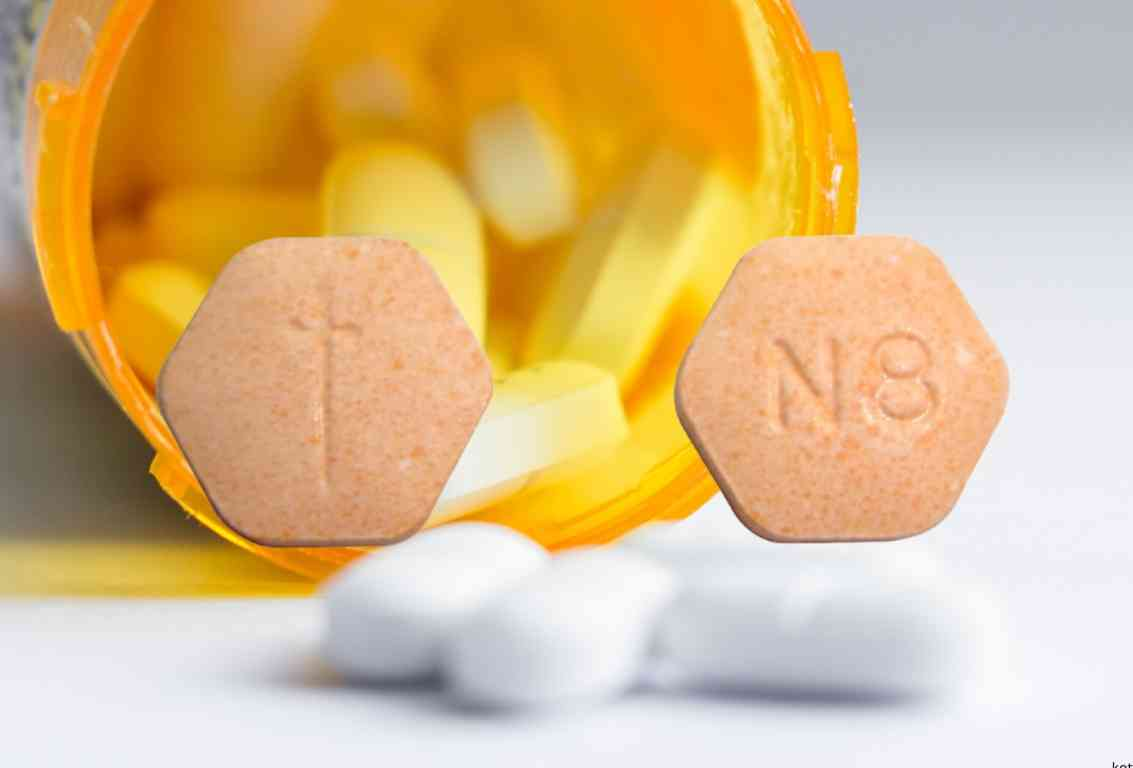The search for effective treatments for addiction has led to the exploration of various innovative therapies. Among these, Ibogaine therapy stands out for its potential in addressing Suboxone addiction. Suboxone treatment involves multiple phases, including induction, stabilization, and maintenance, and is crucial for managing substance use disorder under a doctor’s supervision.
This comprehensive guide aims to shed light on how Ibogaine can be utilized to treat addiction, particularly in individuals dependent on Suboxone, and the underlying science that makes it effective.
You’ve been using Suboxone for a while, and you’re ready to stop. But how may Suboxone addiction withdrawal symptoms be treated?

Ibogaine is one possible solution, but it’s not right for everyone—and some risks are involved.
If you think you might be ready for treatment with Ibogaine, we recommend that you find a reputable provider before making any decisions about your treatment plan.
Understanding drug addiction and Opioid Dependence and Its Impact
Drug addiction is a complex and multifaceted condition that profoundly impacts individuals, families, and communities worldwide. It encompasses a range of substance use disorders characterized by compulsive drug-seeking behavior and continued use despite harmful consequences.
From opioids and stimulants to sedatives and hallucinogens, drug addiction spans a broad spectrum of substances, each with its unique challenges. Beyond the physical dependence and withdrawal symptoms, drug addiction often intertwines with psychological and social factors, contributing to its chronic and relapsing nature.
Addressing drug addiction requires a comprehensive approach that encompasses medical intervention, behavioral therapy, social support, and ongoing monitoring. By understanding the complexities of drug addiction and providing effective treatment and support, we can work towards reducing its devastating impact on individuals and society as a whole.
Opioid dependence is characterized by the body’s reliance on opioids to function normally. Chronic use of opioids, including Suboxone, alters the brain’s chemistry, leading to physical and psychological dependence. Individuals with opioid dependence may find it difficult to stop using opioids without experiencing withdrawal symptoms. Key aspects of opioid dependence include:
Brain Chemistry Alteration: Opioids affect the brain’s reward system, leading to changes in neurotransmitter levels and neural pathways.
Physical Tolerance: Over time, individuals develop tolerance to opioids, requiring higher doses to achieve the same effects.
Psychological Dependence: Opioid use becomes intertwined with daily life, leading to cravings and compulsive drug-seeking behavior.
The Role of Suboxone in Opioid Addiction Treatment
Suboxone, a prescription medication composed of buprenorphine and naloxone, plays a pivotal role in substitution therapy for opioid use disorder. The buprenorphine component acts as a partial opioid agonist, attaching to the same receptors in the brain as other opioids but without producing the same intense high.
This helps in reducing cravings and withdrawal symptoms during the induction phase and maintenance phase of treatment. The naloxone component is an opioid antagonist that helps prevent misuse by causing withdrawal symptoms if injected.
Challenges with Suboxone
Despite its effectiveness, Suboxone can lead to dependence, and some individuals abuse Suboxone, experiencing significant withdrawal symptoms when they attempt to discontinue its use. This challenge is where Ibogaine therapy offers a potential solution, providing a pathway to detoxification and long.
Suboxone Withdrawal Symptoms: A Roadblock to Recovery
Suboxone, a combination medication containing buprenorphine and naloxone, is commonly used in the treatment of opiate dependence and OUD.

While it effectively manages opioid withdrawal symptoms during the induction and maintenance phases of treatment, prolonged use can lead to dependency. Withdrawal from Suboxone can result in a range of symptoms, including:
Physical Discomfort: Individuals may experience flu-like symptoms, including muscle aches, nausea, vomiting, and diarrhea.
Psychological Distress: Anxiety, depression, irritability, and mood swings are common psychological symptoms during Suboxone withdrawal.
Cravings: Strong cravings for opioids, including Suboxone, can be overwhelming, making it challenging to abstain from use.
Understanding Ibogaine Therapy
Buprenorphine treatment offers a low addictive potential when used to maintain opioid dependence, but it can still lead to addiction, especially with medications like Suboxone. Ibogaine therapy provides a promising solution for individuals struggling with Suboxone withdrawal symptoms and opioid dependence. By addressing both the physical and psychological aspects of addiction, Ibogaine provides a comprehensive detoxification experience. Here’s how Ibogaine therapy can help:
Resetting Brain Chemistry: Ibogaine interacts with the brain’s opioid receptors, resetting neural pathways and reducing withdrawal symptoms.
Alleviating Cravings: Ibogaine diminishes cravings for opioids, including Suboxone, helping individuals break free from dependence.
Psychological Healing: The introspective journey facilitated by Ibogaine therapy can lead to profound psychological insights, addressing underlying emotional issues contributing to addiction.
The Process of Ibogaine Treatment
Pre-Treatment Preparation
A comprehensive medical history and health risk assessment are crucial before beginning Ibogaine therapy. Patients must gradually taper off Suboxone under medical supervision to mitigate the risk of severe withdrawal symptoms during treatment. This preparation phase is critical for ensuring patient safety and the efficacy of the therapy.
Ibogaine Administration
Ibogaine therapy typically occurs in specialized treatment centers or clinics equipped to handle the treatment’s complexities. Patients are administered a single high dose of Ibogaine under strict medical supervision. The setting is controlled, and potential health risks are constantly monitored.
The Experience and Immediate Effects
Patients often undergo a profound experience characterized by intense psychological insights during the treatment. This phase can last for several hours, during which the brain’s chemistry is reset, reducing withdrawal symptoms and cravings for opioids. This psychological journey can be challenging but is crucial to the healing process.
Post-Treatment Care
Following the initial Ibogaine treatment, patients may need additional support to sustain their recovery. This post-treatment phase can include counseling, lifestyle modifications, and continued medical support. The goal is to ensure that the benefits of the Ibogaine therapy are long-lasting and that patients do not relapse into substance use.
Benefits of Ibogaine Therapy
Rapid and Effective Detoxification
Ibogaine has shown promise in providing rapid detoxification from opioids, including Suboxone. Patients often report a significant reduction in withdrawal symptoms, allowing them to move through the detox phase more comfortably and quickly than traditional methods.
Psychological Healing
Ibogaine’s ability to induce deep psychological insights helps address the underlying emotional and psychological issues that contribute to addiction. This aspect of the therapy can lead to lasting behavioral changes and a reduced risk of relapse.
Long-Term Reduction in Cravings
By resetting the brain’s neural pathways, Ibogaine therapy helps diminish cravings for opioids and other substances. This reduction in cravings is essential for maintaining long-term sobriety and avoiding relapse.
Challenges and Considerations
Health Risks
Ibogaine therapy is not without risks. The treatment can pose serious health risks, including cardiac complications. The medicine must be administered in a controlled environment with appropriate monitoring to manage these risks.
Regulatory and Legal Issues
Ibogaine is currently not approved by the F.D.A. for the treatment of addiction, and researchers must work with the Drug Enforcement Administration to secure it for research purposes. This lack of approval limits its availability and regulatory oversight, which can be a barrier for those seeking this treatment.
Variability in Outcomes
The effectiveness of Ibogaine can vary among individuals. Not all patients may respond favorably to the treatment; some may require additional therapeutic interventions to achieve lasting recovery.
Research and Future Directions
Despite the challenges, research published in various medical journals has highlighted the potential of Ibogaine therapy in treating addiction. Studies have demonstrated its effectiveness in reducing opioid withdrawal symptoms and cravings, suggesting that Ibogaine could play a significant role in future addiction treatment paradigms.
Conclusion
Ibogaine therapy represents a promising approach to treating Suboxone addiction and other substance use disorders. By addressing both the physical and psychological aspects of addiction, Ibogaine offers a comprehensive treatment option that can facilitate detoxification and long-term recovery. However, it is essential to approach this treatment cautiously, ensuring it is administered in a safe, controlled environment.
For individuals struggling with Suboxone addiction, Ibogaine therapy may provide the breakthrough needed to achieve sustained sobriety.
As research continues to evolve, the hope is that Ibogaine will become an integral part of the addiction treatment landscape, offering new hope to those battling substance use disorders. Always consult a doctor or addiction specialist to determine the most appropriate treatment for your needs and medical history.
Helpful Resources
1. National Institute on Drug Abuse (N.I.D.A.): N.I.D.A. is a government-funded research organization that provides information and resources on addiction and substance abuse. Their website offers resources specifically tailored to the pandemic, including information on telehealth and online support groups.
2. Substance Abuse and Mental Health Services Administration (SAMHSA): SAMHSA is a government agency that provides information and resources on addiction and mental health. Their website offers resources specifically tailored to the pandemic, including a national helpline for individuals who are struggling with addiction or mental health issues.
3. Alcoholics Anonymous (A.A.): A.A. is a support group for individuals struggling with alcohol addiction. A.A. has moved many of its meetings online, providing a safe and accessible way for individuals to connect with others who understand their struggles.
4. Narcotics Anonymous (N.A.): N.A. is a support group for individuals struggling with drug addiction. Like A.A., NA has moved many of its meetings online, providing a safe and accessible way for individuals to connect with others who understand their struggles.
5. Mental health professionals: Mental health professionals such as therapists and counselors can provide individualized support and guidance for individuals struggling with addiction during the pandemic. Many mental health professionals offer teletherapy, a form of therapy con


